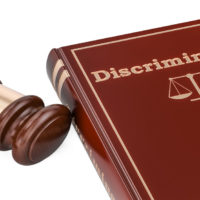Obesity in America affects workers in every industry. In fact, more than a quarter of workers in the United States are considered obese. Still, the ubiquity of the problem does nothing to provide solace to individual workers who suffer from certain negative attitudes and hurtful opinions that influence workplace discrimination on the basis of their weight. When people endure harsh and unfair treatment that singles them out as a result of their size, it seems cruel to find that federal[…] Read More
Category: Employment Discrimination
What Rights Do I Have if I Am Laid Off from My Job?
Businesses sometimes need to make staff cuts. Layoffs happen for all kinds of reasons that often have nothing to do with the individual employee or their job performance. However, sometimes layoffs are a way for employers to get rid of specific workers. Layoffs can be used as a means of purging people who the company finds objectionable, sometimes based on unlawful biases. Such motivations can be difficult to prove, but there are laws to protect employees from wrongful termination as[…] Read More
What Are the Legal Rights of a Job Applicant?
When looking for a job, applicants may believe they are at the mercy of the hiring decision makers. Prospective employees often bend over backwards to make a good impression, sometimes even enduring treatment that seems inappropriate or demeaning. The power imbalance can feel very real, but there are laws that aim to protect applicants from such unfair treatment. The law offers protections for job applicants under the direction of the New Jersey Law Against Discrimination (NJLAD) and the Equal Employment[…] Read More
Can Halloween Parties Lead to Sexual Harassment Claims?
Halloween is supposed to be all in good fun, but it is not always fun for everyone. Although the idea for an employer-sponsored Halloween party may be born out of a desire to create a workplace community or to encourage teambuilding among colleagues, the sentiment has the potential to backfire. Unfortunately, some workers may have religious or moral objections to celebrating the holiday; others may become offended by a co-worker’s ill-conceived costume; and still others may be made to feel[…] Read More
What is National Origin Discrimination?
National origin discrimination in employment is an illegal practice whereby an employer makes employment decisions related to hiring, firing, raises, advancement opportunities, or any other employment status, compensation, or benefit of employment based on the country or geographic area from which the applicant or employee came. The discriminatory foundation for these decisions might be based on mistaken information, such as a belief that a person hails from an undesirable part of the world, even if that is not the case.[…] Read More











